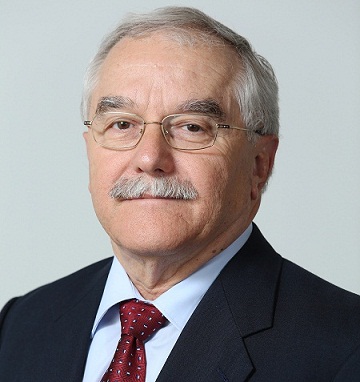The Minister of Agriculture and Rural Development of the State of Israel, Mr. Yair Shamir, has expressed confidence in Ghana’s agricultural sector describing it as one that could be a “heaven”.
“I am very optimistic, I think the potential is good, Ghana could be heaven. Looking at the resources you have, we want to share in making it a reality,” he told the GRAPHIC BUSINESS in an exclusive interview during a 2-day working visit to Ghana on March 3.
Although Ghana’s agric sector has not been doing well for a while now, relinquishing its position as the largest contributor to Gross Domestic Product (GDP), Mr. Shamir said Israel has invested so much into research and if Ghana can do same coupled with its available natural resources, the sector can record tremendous growth.
According to crop researchers in Ghana, the government commits almost nothing in the annual budget to crop research.
As a result, they are unable to research into different crop varieties for the different regions that could help boost production across the country.
Today, Ghana imports food, chief of which is rice although this can be grown in many parts of the country to meet local demand and even for exports.
In the Accra plains for instance, there are vast arable lands which are being sold out to estate developers by family heads, clans and chiefs while people living within those areas wallow in abject poverty.
In the countryside, there are many water bodies which could be irrigated to support all year-round farming but again, governments in recent times pay lip service to irrigation.
In tiny Israel, there are no water bodies and the land is not fertile but that country has devoted its taxpayer’s money to turning what would have been a hopeless situation into one that is internationally acclaimed.
The Israeli Agriculture Minister said Israel invests in a lot of research and development to be able to make maximum use of the land at its disposal and noted that, in the area of agriculture, there are always new ideas emerging to ensure that something new and higher in quality is identified at a cheaper cost.
“Israel is a tiny country although a lot of people talk about it in the newspapers and on television. There are no raw materials, no gold, no diamonds, not even water and the only means of survival for us was to develop something different and the difference was the hi-tech industry,” he said.
Mr. Shamir added “We have a very successful agriculture sector and other industries, but all of them have been done after huge investment in research and development and we came up with great ideas which made us unique and very competitive around the globe.”
For a country that is less endowed with natural resources and is still able to grow its agric sector, Ghana is in a better position to explore its natural resources to develop its agriculture to enable it become self-sufficient in food production.
According to him, most of the things they do can apply to Ghana: technology, research and making optimum use of the available natural resources.
“Absolutely, everything is relevant. In the northern side of Ghana, the semi-arid area can be more profitable. When you are in a small country and you have a small piece of land you want to maximize the products from it and you can do this methodically and I will say that the scientific method is the most relevant for all areas,” he stressed.
The Israeli agric minister shared with the paper how he, together with his new team has been able to transform their agriculture sector after assuming office.
“We do believe that we should share our know-how and technology with other countries mainly those who need our support. We are travelling a lot along the globe and I am mostly bringing in businessmen from the private sector because most of the work can be done by the private sector,” he explained.
Although Israel’s agric export is not significant, contributing only 1.8 per cent of the total exports, they are able to supply what they need.
Another significant feature of their agric sector is the diversion to focus on aqua culture.
“I find it ridiculous to be in Israel and be importing more than 60 per cent of our fishery consumption and we are going to change it. I put more of the money in my budget on research and development. This is my main focus,” he said.
Business moguls from the State of Israel were in the country last week to meet their Ghanaian counterparts to explore opportunities that exist in the agricultural sector.
According to Mr. Shamir, businessmen from Ghana did some presentations of their companies, after which a one-one-one session was held adding that feedback from the session appeared satisfactory.
Source: graphic.com.gh
























